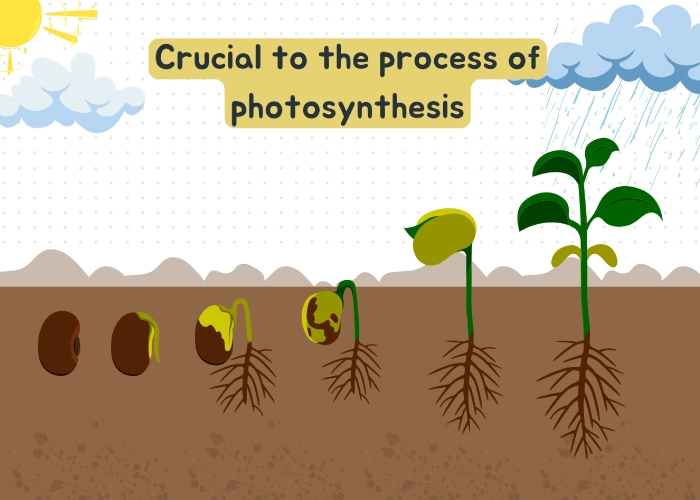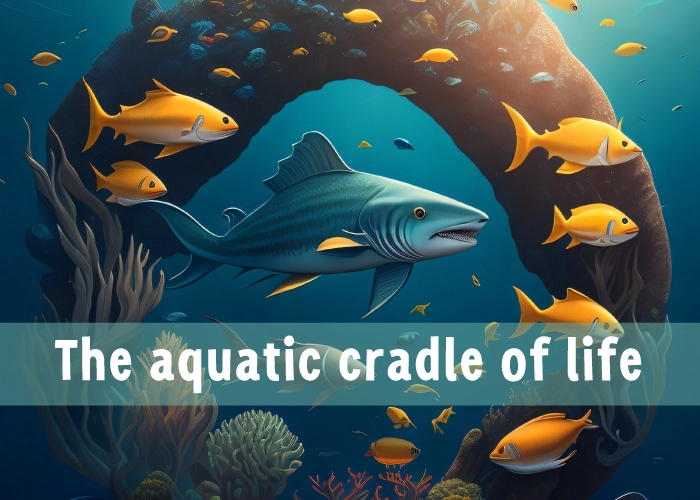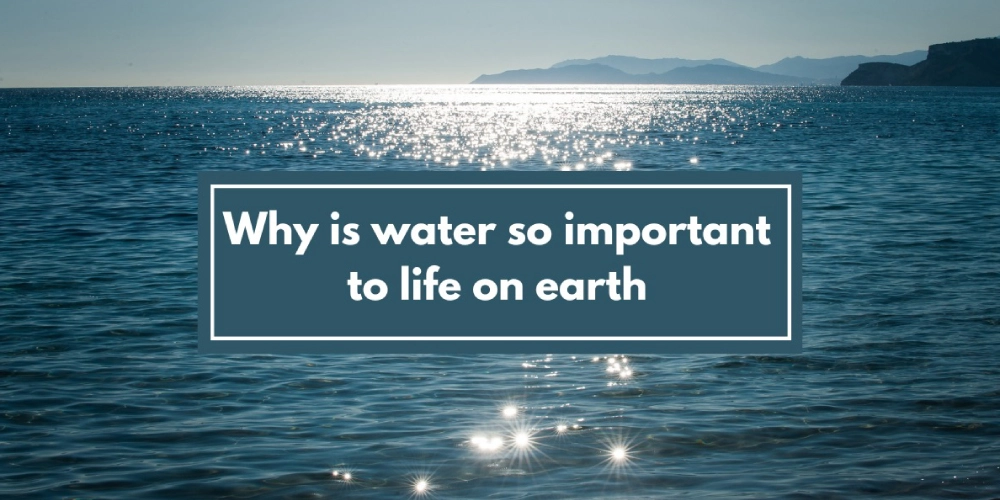The formation and maintenance of life are thought to depend so heavily on water, and more especially on liquid water, that very few scientists even consider the notion that life could exist on other worlds. Organizations like NASA frequently use a single, straightforward approach in their hunt for extraterrestrial life: “Follow the water.”
Why, then, is water such a big deal? Well, there are a few, but they’re all based on the special chemical characteristics of water. One large, negatively charged oxygen atom and two small, positively charged hydrogen atoms make up the basic molecule known as H20. This confers “polarity” on every molecule as well as the substance. Let’s talk about Why water is so important to life on Earth.
Water Is Necessary for All Living Things

Water is a necessity for all living things, including enormous blue whales and microscopic microorganisms. Life as we know it would not exist without water. And wherever there is water, there is life. Water is used by all living things, including plants and animals, and it can be fresh or salty, hot or cold, abundant or scarce. They can survive in a wide range of environments, from scorching deserts to the icy, dark ocean floor. Nearly four billion years ago, the earliest living organisms made their appearance in the seas. Some adapted to living on land, much like our predecessors did. People have learned to live in a variety of environments, including deserts, swamps, and all in between.
Water Is Essential to All Ecosystems
What is the amount of water on top of a mountain or an island? What lives there and in what quantity depends on the response. A community of living organisms, or species, is called an ecosystem. There are ecosystems with freshwater and those with saltwater, some extremely moist and others quite dry. There are many species found in certain environments, such as coral reefs, and very few in others, such as the arid valleys of the Antarctic.
Let’s examine why water is essential to life as we know it on Earth:
The Chemical Foundation of Life
Since water is a universal solvent, a variety of compounds can be dissolved in it. This characteristic is essential to biological functions. Water helps our bodies carry nutrients, hormones, and waste products, which speeds up metabolic processes. The intricate chemistry needed for life could not exist without water.
Temperature Control
Water can absorb and hold a lot of heat without causing a substantial change in temperature because of its high specific heat capacity. This characteristic keeps the temperature stable and gives living things a stable habitat. With the seas accounting for more than 70% of the planet’s surface, they are essential in controlling the planet’s temperature and maintaining habitability.
Encouraging Cellular Activity
Seventy percent of the weight of cells, the fundamental building blocks of life, is made up of water. Water is necessary to keep cells functional and structurally sound. It offers the medium for biochemical activities to take place, aids in the development of cellular membranes, and facilitates the movement of molecules across these membranes.
Crucial to the process of photosynthesis

An essential component of photosynthesis, the process by which plants make energy, is water. Water molecules divide into oxygen and hydrogen during photosynthesis. While the oxygen is released into the atmosphere, which is necessary for all aerobic life, the hydrogen is used to generate glucose, a key source of energy.
Developing Ecosystems
Rivers, lakes, oceans, and wetlands are just a few of the many ecosystems that are shaped by water in the environment. Numerous organisms that have adapted to the particular conditions that water creates can be found in these environments. The availability of water directly impacts the distribution and diversity of life on Earth.
Keeping Human Civilisation Alive
Water is essential to civilization and human life. It is utilized in industrial, agriculture, drinking, and sanitation. Since water sources have historically been the location of human settlements, access to clean water continues to be crucial for the health and welfare of the general public. Water is essential to agriculture in order to grow the foods that feed the globe.
A Limited Resource in Danger
Although the majority of the Earth is covered in water, very little of it is fresh and usable by humans. Pollution, overuse, and climate change are endangering this valuable resource. For life to continue on Earth, water resources must be managed and protected.
Water phases
The fact that water may function as a solid, liquid, or gas within the range of temperatures found on Earth is another characteristic of water. According to Glazer, other compounds that have been found to be viable candidates for supporting life are often liquid at pressures or temperatures that would be unsuitable for the majority of known life forms. [5 Myths and Misconceptions about Mars]
Glazer stated, “Water is really at that sweet spot.” He went on to say that there are several opportunities for life to flourish since water may exist in all three phases within a relatively small range of pressures. “All three [states of water] available on our planet creates this really neat variety of habitats and microclimates,” said Glazer.
For example, glaciers that sculpt mountains contain ice, and water vapor contributes to atmospheric warming, according to Glazer.
The aquatic cradle of life

Water may have served as more than just a fluid to support life’s fundamental functions; it might have served as the haven that transported the elements of life to Earth, according to Ralf Kaiser, a physical experimental chemist with a background in astrochemistry at the University of Hawaii at Manoa. Panspermia is a theory that suggests the origin of life on Earth was caused by frozen comets that collided with Earth and carried small organic molecules that became the building blocks of life. However, Kaiser noted that space travel is a difficult undertaking, including intense radiation exposure that would typically break down those fragile molecules.
But Kaiser surmised that water, in its solid state, would have offered a means of protecting those molecules from radiation. “One possibility is that because the building blocks are frozen within the water, it has this protective mantle around it that could be delivered,” Kaiser said on Live Science.
In summary
Because of its special qualities, water is essential to life. Water is essential to all aspects of life, from cellular processes to the stability of ecosystems. It is more crucial than ever to recognize the vital role that water plays in our ecosystem and to take action to protect this priceless resource as we confront more and more environmental concerns. Life as we know it would not exist without water.

